Top 15 High-Fiber Foods That Can Aid Your Weight Loss Journey
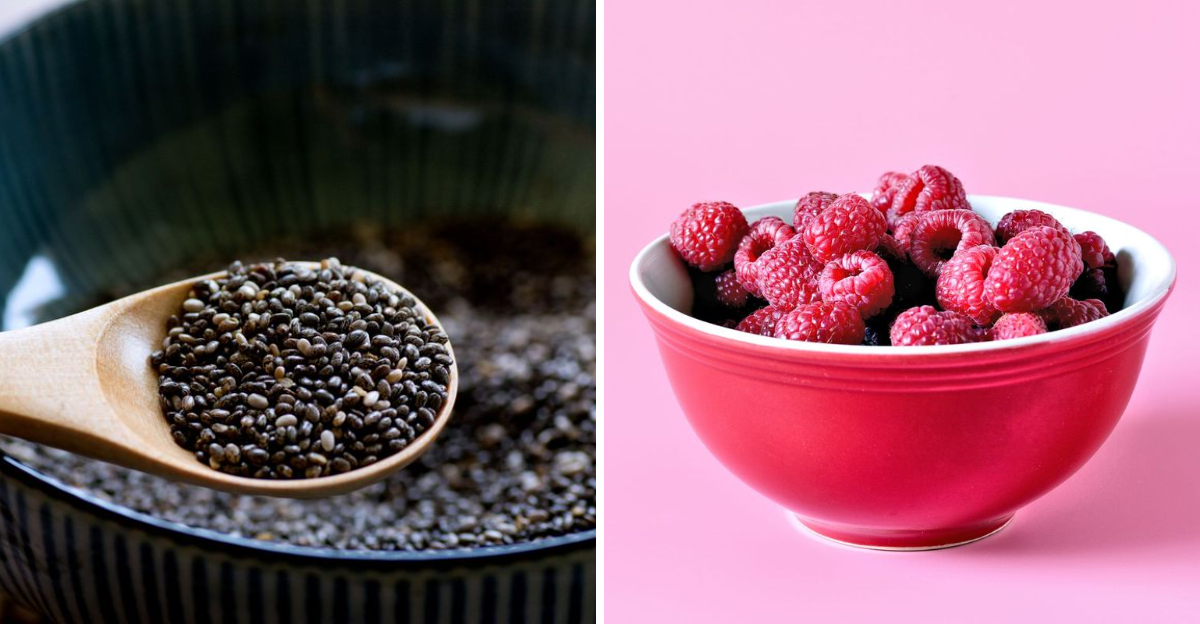
Embarking on a weight loss journey can be challenging, but incorporating high-fiber foods into your diet can make a significant difference. Fiber not only aids digestion but also helps you feel full longer, reducing the urge to snack on unhealthy foods. Here are 15 high-fiber foods that are not only nutritious but also delicious, ensuring that your weight loss journey is both healthy and satisfying.
1. Chia Seeds
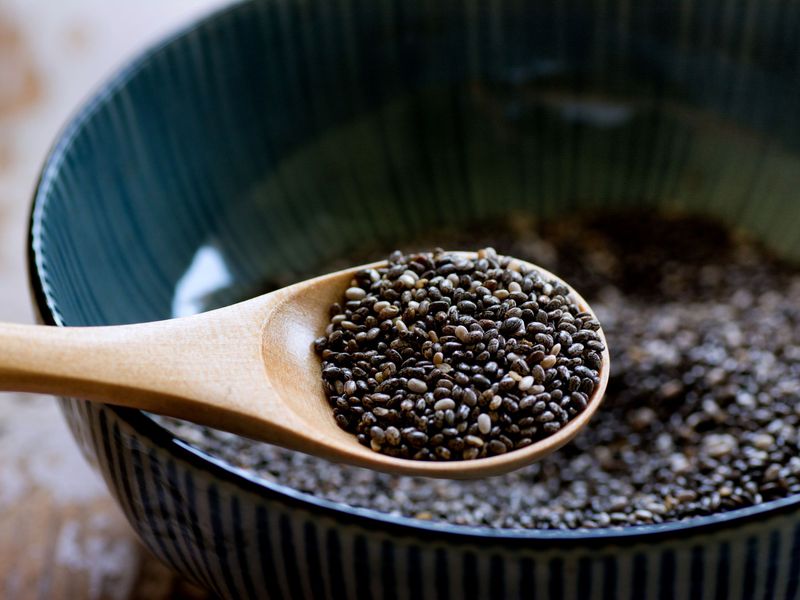
Tiny but mighty, chia seeds pack a fiber punch. Just two tablespoons contain around 10 grams of fiber, making them a valuable addition to any diet focusing on weight loss. These little seeds absorb liquid, expanding in your stomach and helping you feel full longer. Known for their versatility, chia seeds can be added to smoothies, oatmeal, or even baked goods. Beyond their fiber content, they offer omega-3 fatty acids, which are beneficial for heart health. Their mild flavor allows them to effortlessly blend into various dishes, enhancing both nutritional value and texture.
2. Lentils
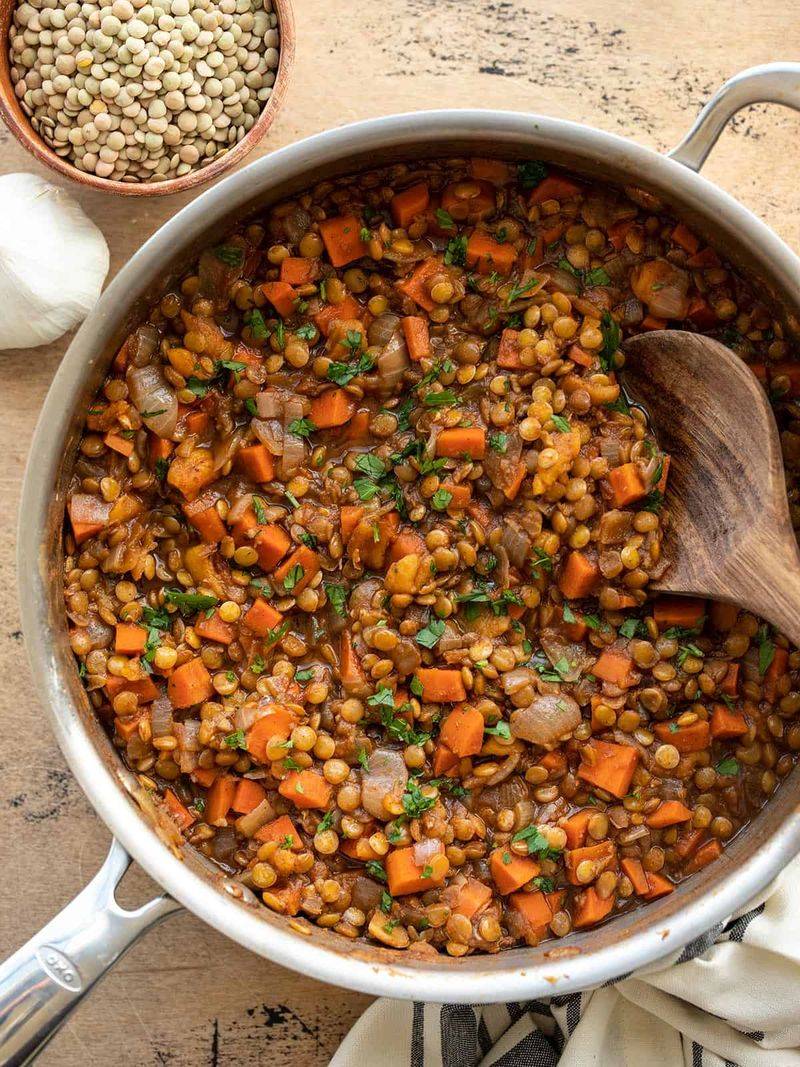
Affordable and fiber-rich, lentils are a staple in many households for good reason. A cooked cup of lentils provides about 15 grams of fiber, along with a healthy dose of plant-based protein. This combination makes them a fantastic meat substitute. Lentils come in various colors, each offering unique textures and flavors, yet all are equally nutritious. Whether in soups, stews, or salads, they add a hearty texture and depth of flavor. Their low cost and long shelf life make them a practical choice for anyone looking to enhance their fiber intake without breaking the bank.
3. Avocados

Creamy and irresistibly satisfying, avocados are more than just a trendy toast topping. Each avocado contains about 10 grams of fiber, combined with healthy fats that curb hunger and promote nutrient absorption. Though often associated with savory dishes, their subtle flavor pairs well with sweet ingredients too. From guacamole to smoothies, avocados offer versatility in abundance. The monounsaturated fats they provide are praised for heart health benefits. Whether mashed, sliced, or blended, avocados enrich meals with their creamy texture and nutritional prowess, making them an excellent choice for those mindful of their diet.
4. Raspberries
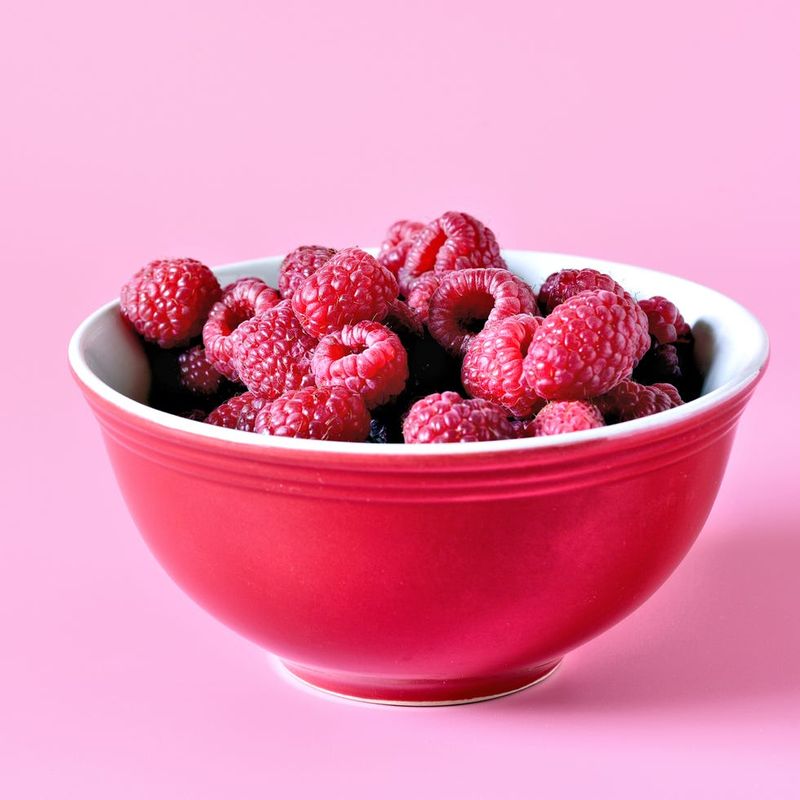
Among the highest-fiber fruits, raspberries stand out with their rich, red allure. Just one cup provides about 8 grams of fiber, making them a delightful addition to any meal. Their tart sweetness can enliven smoothies, oatmeal, or desserts. Apart from fiber, raspberries are rich in antioxidants, which combat free radicals and may lower the risk of chronic diseases. These berries capture the essence of summer in every bite, offering not only flavor but also vibrant color to dishes. Whether fresh or frozen, they are a cherished choice for those seeking both taste and health.
5. Black Beans
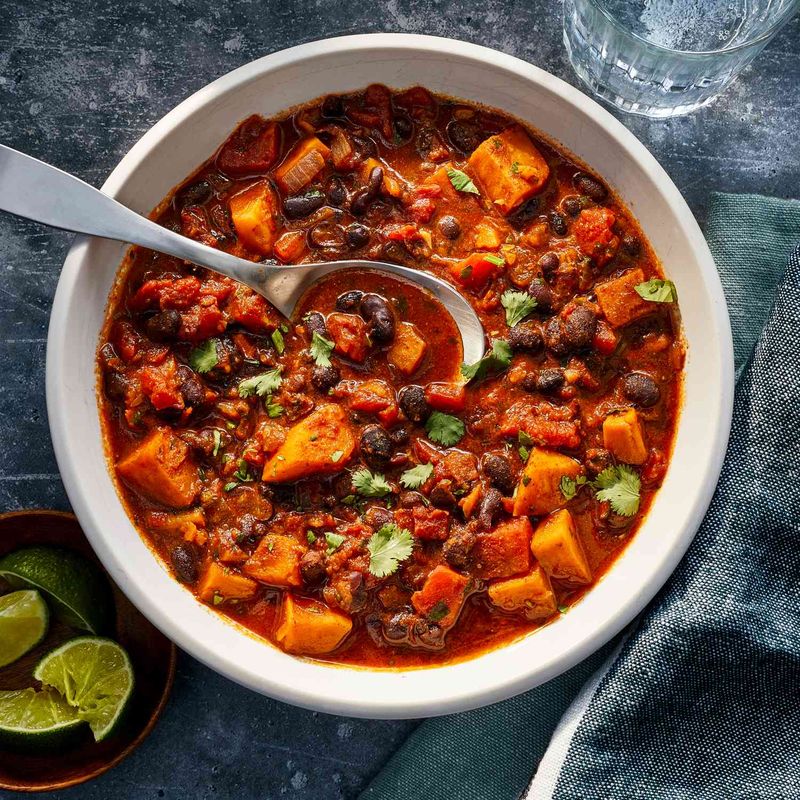
Black beans are true fiber powerhouses, with a cup of cooked beans delivering around 15 grams of fiber. Their robust, earthy flavor complements a variety of cuisines, making them a staple in many households. Besides fiber, they offer protein and essential nutrients, contributing to a balanced diet. Whether served in a hearty chili, a vibrant salad, or classic rice and beans, they never fail to satisfy. Their versatility and nutritional benefits make them an indispensable part of a healthy eating plan, especially for those focused on weight loss and maintaining energy levels throughout the day.
6. Broccoli
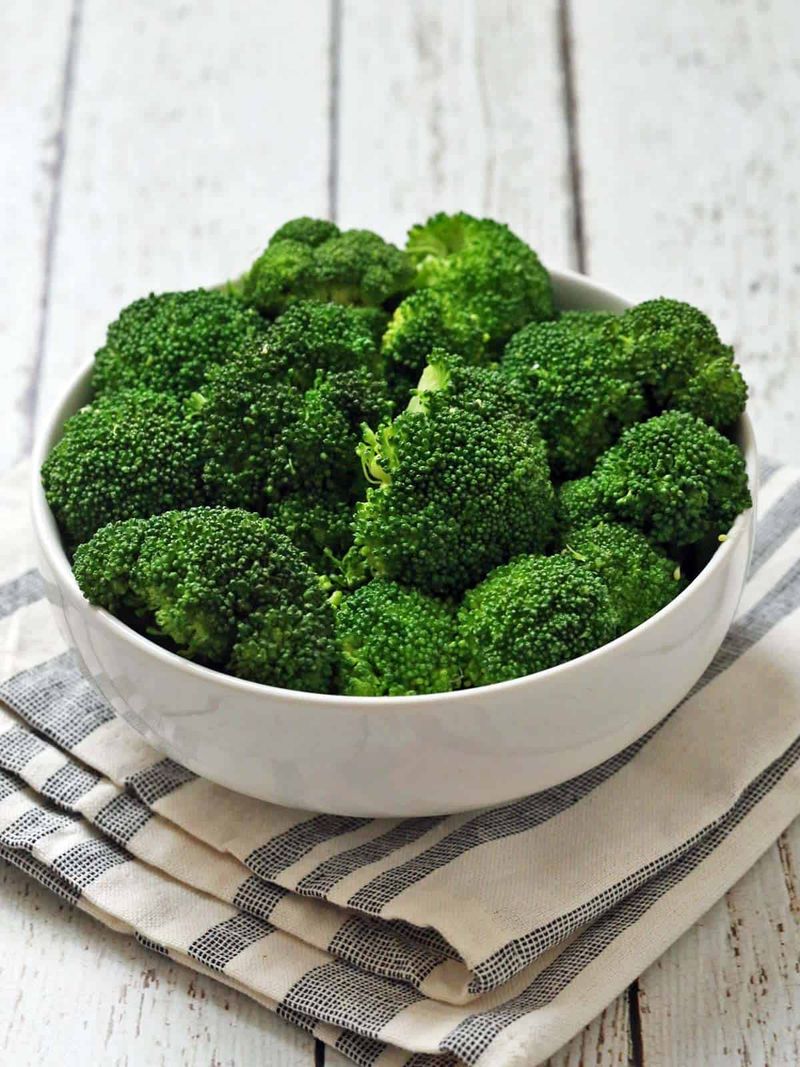
Not just any low-calorie vegetable, broccoli is a fiber-rich superstar. A cup of cooked broccoli contains about 5 grams of fiber, contributing to digestive health and satiety. Its mild flavor and crunchy texture make it a versatile addition to various dishes. Whether steamed, roasted, or tossed into a stir-fry, broccoli stands out as a nutrient-dense choice. Rich in vitamins C and K, it supports bone health and immune function. Adding broccoli to meals not only boosts fiber intake but also enhances the overall nutritional quality, making it a must-have for anyone watching their weight.
7. Oats
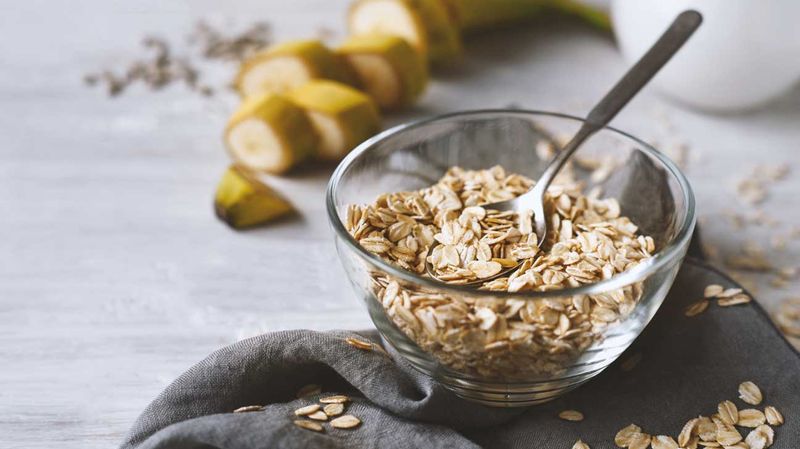
Whole rolled oats are a breakfast staple renowned for their soluble fiber, which aids in lowering cholesterol and keeps you full for hours. A versatile ingredient, oats are perfect for porridge, smoothies, or even baking. Choose unsweetened options to maximize health benefits. Their mild, nutty flavor enhances both sweet and savory dishes, providing a wholesome start to the day. Beyond fiber, oats are rich in important nutrients like manganese and iron, contributing to overall health. For those on a weight loss journey, oats are an excellent way to begin the morning with sustained energy and fullness.
8. Pears
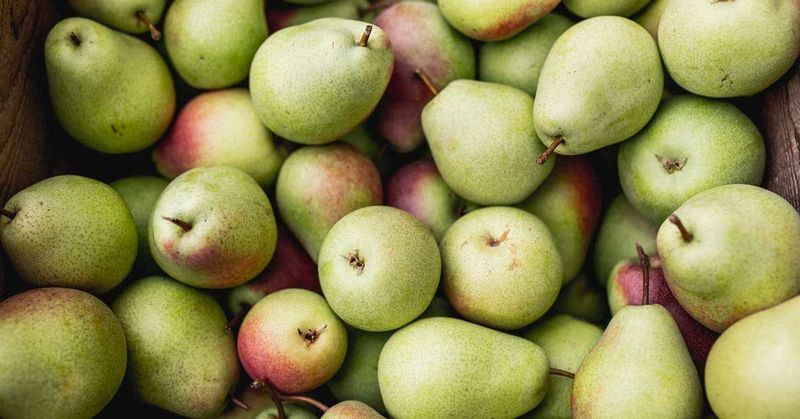
Naturally sweet and supremely portable, pears are a fiber-rich fruit that shouldn’t be overlooked. To maximize fiber, enjoy them with the skin on—a medium pear offers around 6 grams. Their juicy sweetness is perfect for snacks, salads, or as a simple dessert. In addition to fiber, pears are a good source of vitamin C, aiding in immune health. Their versatility allows them to pair well with both sweet and savory flavors, adding a refreshing element to meals. Whether sliced into a salad or enjoyed solo, pears are a delightful way to increase fiber intake naturally.
9. Sweet Potatoes

Sweet potatoes offer more than just a burst of color to your plate; they provide essential nutrients and fiber, especially when the skin is left on. A medium sweet potato contains about 4 grams of fiber, supporting digestive health and providing complex carbohydrates for sustained energy. Their natural sweetness makes them a favorite in both savory and sweet dishes. Whether roasted, mashed, or baked, sweet potatoes are a comforting food that satisfies. Rich in vitamins A and C, they also contribute to healthy skin and vision. Their versatility and flavor make them a staple in nutritious meals.
10. Brussels Sprouts
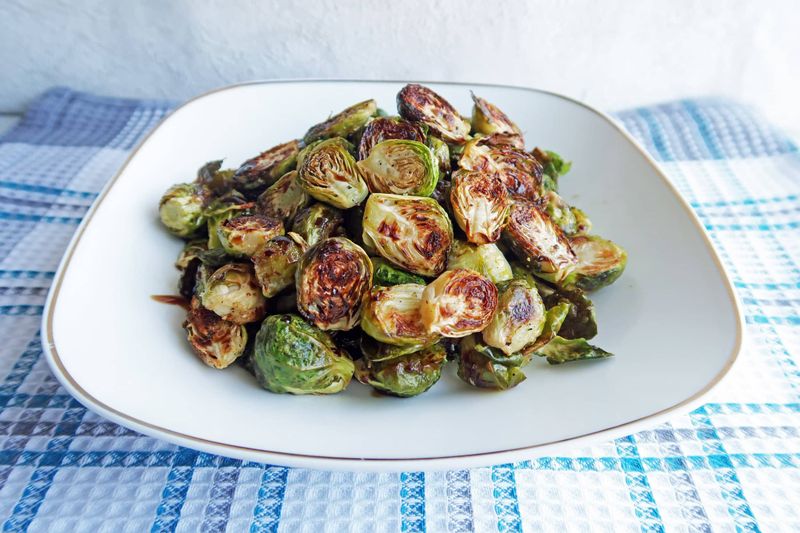
Brussels sprouts may be one of the most underrated vegetables regarding fiber content. Roasting them at high heat brings out their natural sweetness, transforming them into a crispy, filling side dish with about 4 grams of fiber per cup. Their nutty flavor pairs well with herbs and spices, complementing any meal. Packed with vitamins C and K, Brussels sprouts support overall health. As a cruciferous vegetable, they also offer potential cancer-fighting properties. Whether you love them or are just discovering their charms, Brussels sprouts are worth adding to your regular rotation for flavor and nutrition.
11. Almonds
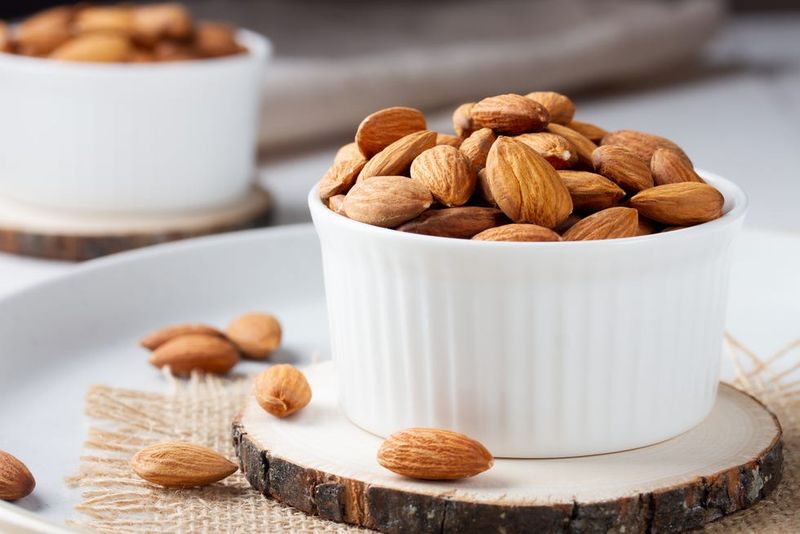
High in fiber, protein, and healthy fats, almonds are a snack that stands the test of time. A small handful, about an ounce, offers around 3.5 grams of fiber, making them perfect for curbing hunger between meals. Their crunchy texture and rich, buttery flavor make almonds a favorite in both sweet and savory dishes. Beyond fiber, they provide vitamin E and magnesium, supporting skin health and energy production. Whether enjoyed raw, roasted, or as almond butter, they add nutritional value and satisfying crunch, making them an excellent choice for mindful snacking and maintaining a balanced diet.
12. Quinoa
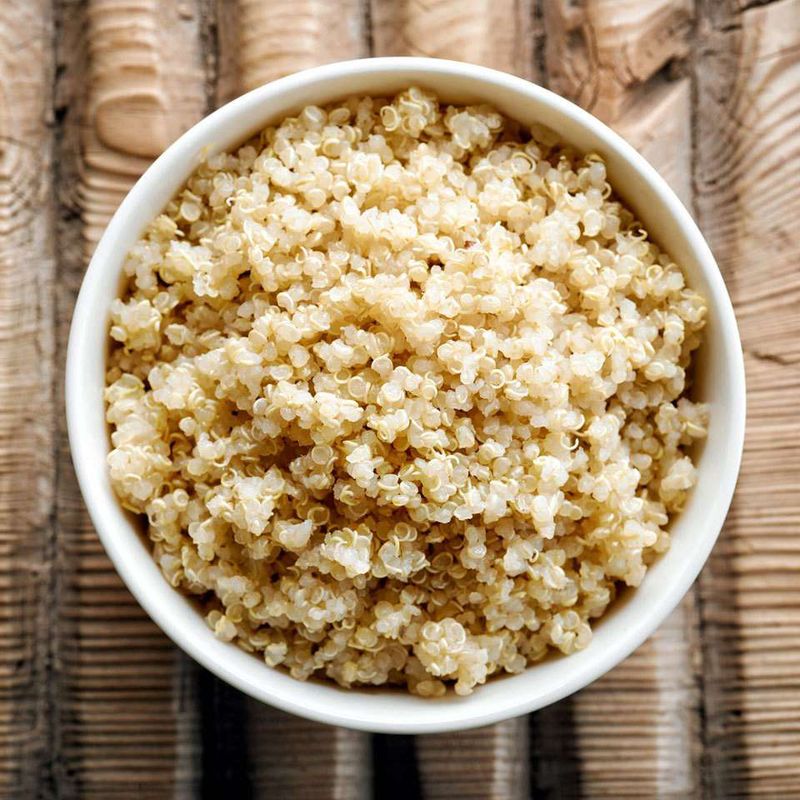
Unlike most grains, quinoa is a complete protein and a fiber-rich choice for health-conscious eaters. A cup of cooked quinoa offers about 5 grams of fiber, along with essential amino acids necessary for muscle repair and growth. Its mild, nutty flavor makes it a versatile base for salads, bowls, and pilafs. Rich in minerals like magnesium and phosphorus, quinoa supports bone health and energy production. As a gluten-free option, it caters to various dietary needs while providing essential nutrients. Incorporating quinoa into meals enhances both flavor and nutrition, making it a valuable food for those on a weight loss journey.
13. Artichokes

Artichokes offer a surprising amount of fiber, with a single medium artichoke containing 6 to 7 grams. Their unique texture and flavor make them a favorite in various culinary traditions. Whether steamed, grilled, or roasted, they provide a delicious way to boost fiber intake. Rich in antioxidants and vitamin C, artichokes support liver health and immune function. Their preparation might seem daunting, but the tender leaves and heart are worth the effort. Artichokes not only add a gourmet touch to meals but also contribute to nutritional goals, especially for those focused on increasing fiber in their diets.
14. Popcorn (Air-Popped)
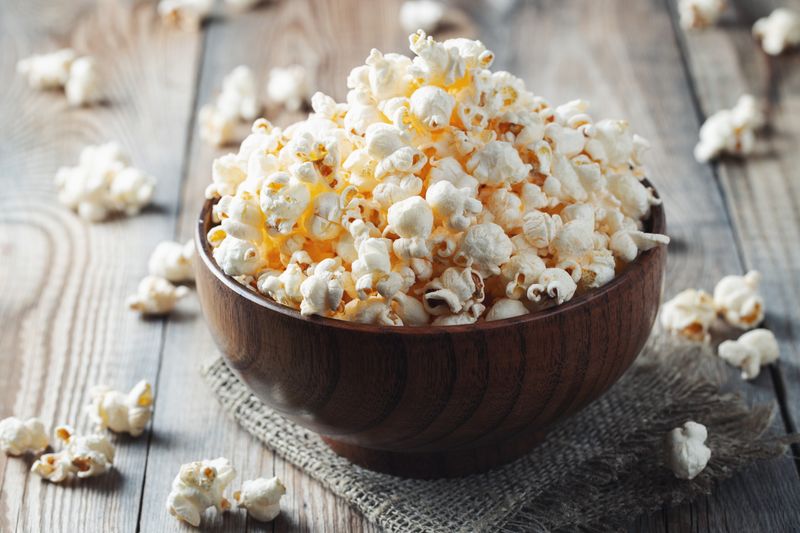
When it’s not drenched in butter, popcorn is an unexpectedly great high-fiber snack. Three cups of air-popped popcorn deliver around 3.5 grams of fiber, offering a satisfying crunch without excessive calories. Its light and airy texture makes it a perfect choice for movie nights or casual snacking. Beyond fiber, popcorn contains polyphenols, which may have antioxidant properties. Easily customizable with spices and seasonings, it can suit any taste preference. As a whole grain, popcorn supports digestive health and adds nutritional value to your snack repertoire, proving that healthy eating can still be fun and flavorful.
15. Flaxseeds
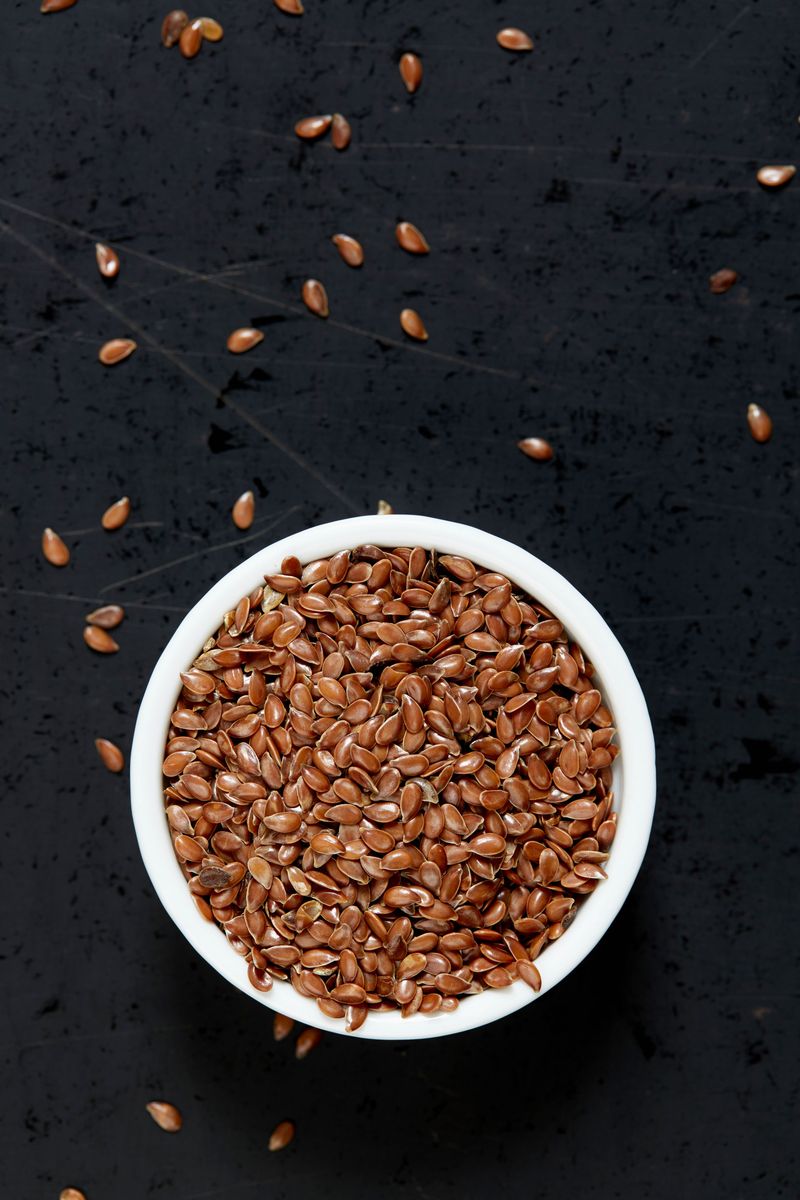
Ground flaxseeds are small but mighty when it comes to fiber content, offering both soluble and insoluble fiber. Adding just a spoonful to smoothies, yogurt, or oatmeal can provide an easy fiber boost. Rich in omega-3 fatty acids, flaxseeds also contribute to heart health. Their nutty flavor complements a wide range of dishes, enhancing both nutrition and taste. Whether you’re looking to support digestive health or add a nutritious element to meals, flaxseeds are an excellent choice. Their minimalistic approach to nutrition proves that sometimes, the simplest ingredients can have the most significant impact.
